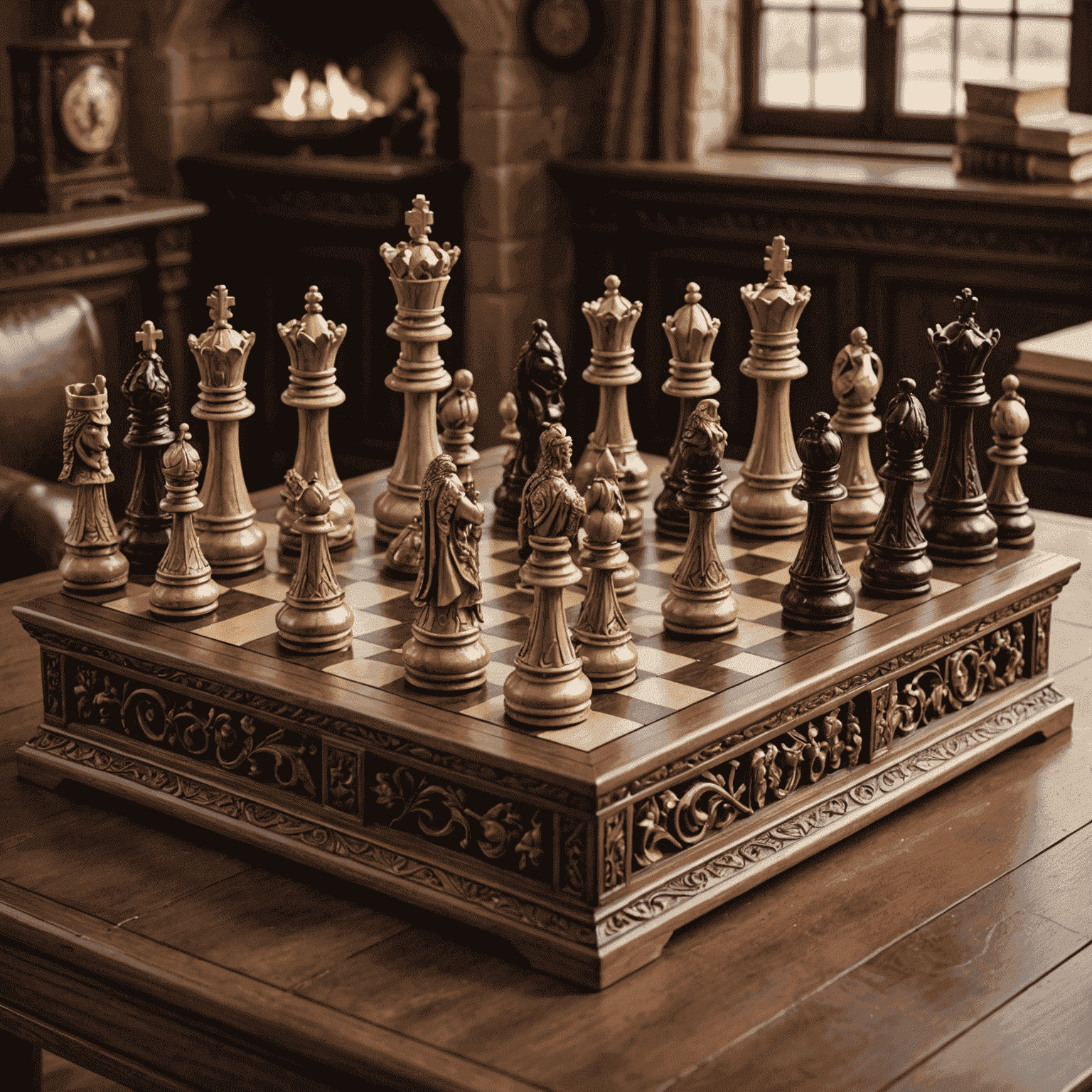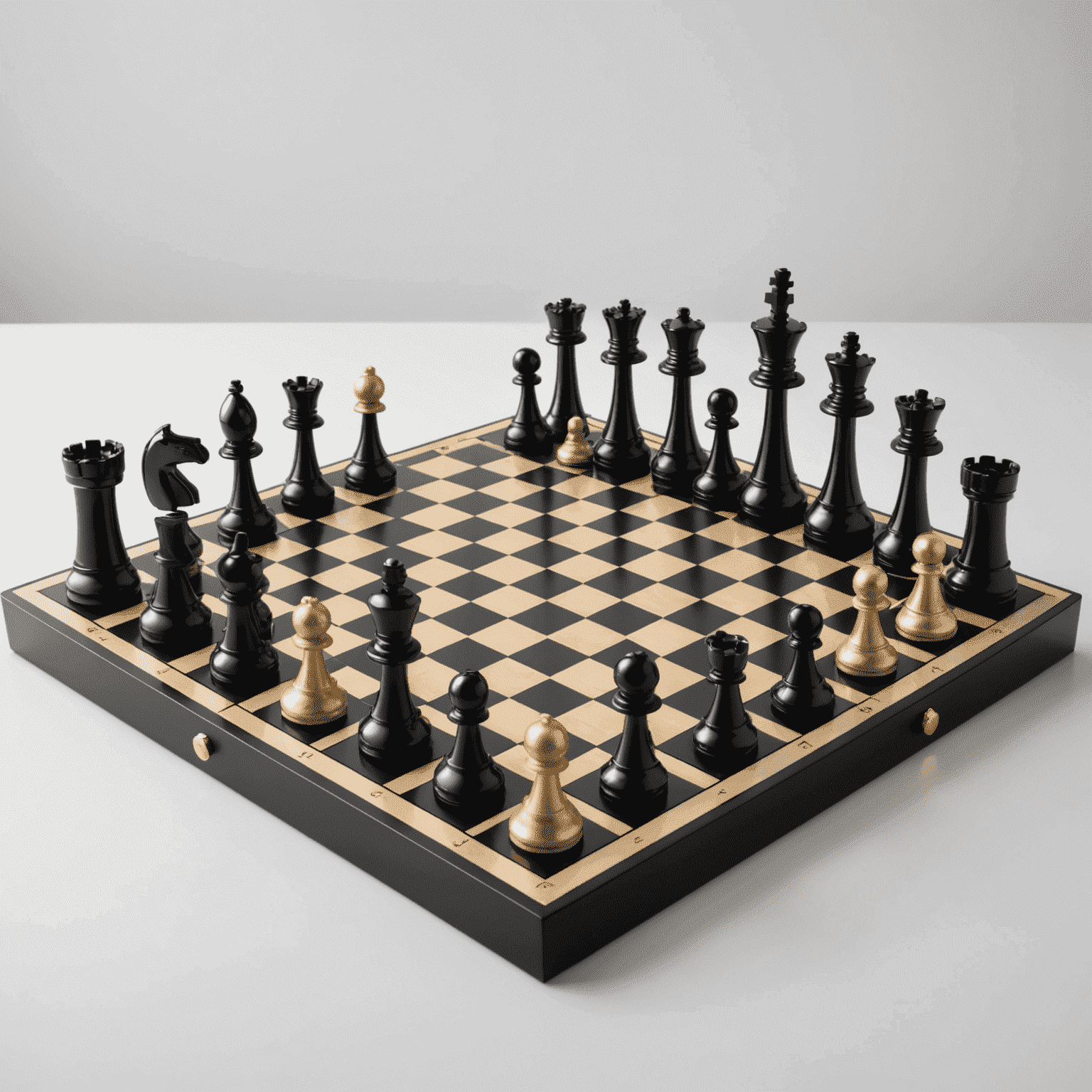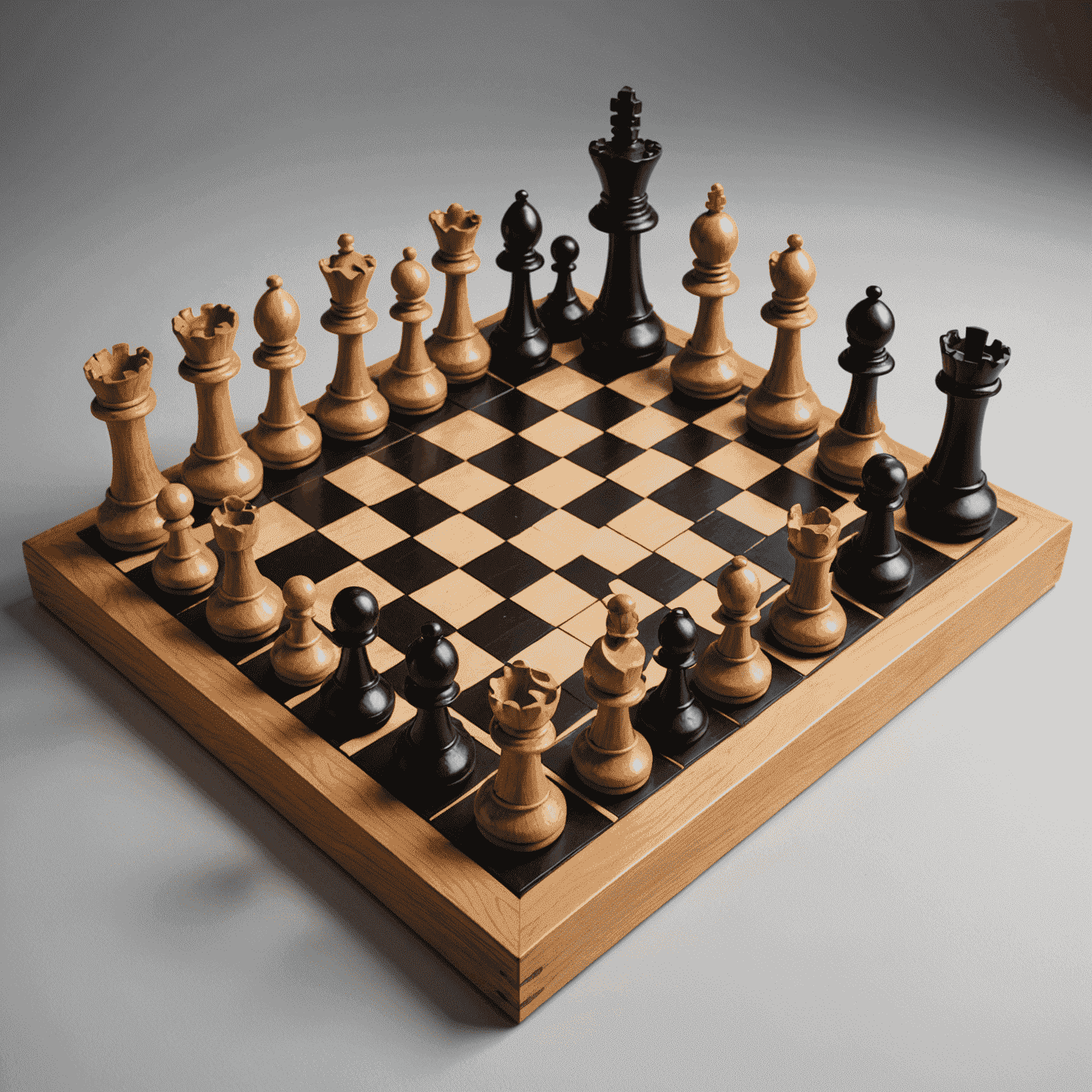From Classic to Modern: The Evolution of Chess Sets

Chess, the game of kings, has captivated players for centuries. But did you know that the chess sets we use have undergone a fascinating transformation over time? Let's embark on a journey through the evolution of chess sets, from classic designs to modern masterpieces!
The Classic Staunton Design
The Staunton chess set, introduced in 1849, became the gold standard for tournament play. Named after English chess master Howard Staunton, this design features pieces with a distinctive look:
- Kings crowned with a cross
- Queens with a small coronet
- Bishops with a mitre-shaped top
- Knights shaped like horse heads
- Rooks resembling castle towers
- Pawns with a simple round top
Medieval and Ornate Sets
Before the Staunton design, chess sets were often ornate and varied widely. Medieval sets featured intricate carvings, sometimes depicting actual military units or royal court members. These sets were often more works of art than practical game pieces.

The Rise of Themed Sets
As chess gained popularity, themed sets began to emerge. These sets often reflected historical battles, famous cultures, or popular franchises:
- Civil War sets (Union vs. Confederacy)
- Ancient Egyptian sets
- Roman Empire vs. Barbarians
- Fantasy-themed sets (elves vs. orcs)
- Pop culture sets (Star Wars, Harry Potter)
Modern Artistic Interpretations
In recent decades, chess sets have become a canvas for artistic expression. Contemporary designers and artists have reimagined chess pieces in stunning and innovative ways:


- Minimalist sets with simple geometric shapes
- Sets made from unconventional materials (glass, metal, recycled objects)
- Abstract interpretations where form represents function
- Kinetic chess sets with moving parts
- Digital and augmented reality chess sets
The Future of Chess Sets
As we look to the future, the evolution of chess sets continues. We're seeing emerging trends like:
- Smart chess sets that connect to apps for learning and analysis
- 3D-printed customizable sets
- Eco-friendly sets made from sustainable materials
- Sets that incorporate elements of other popular board games
Whether you're a traditionalist who loves the classic Staunton design or an art enthusiast drawn to modern interpretations, there's a chess set out there for every player. The evolution of chess sets reflects not just changes in design and technology, but also our enduring love for this timeless game of strategy.